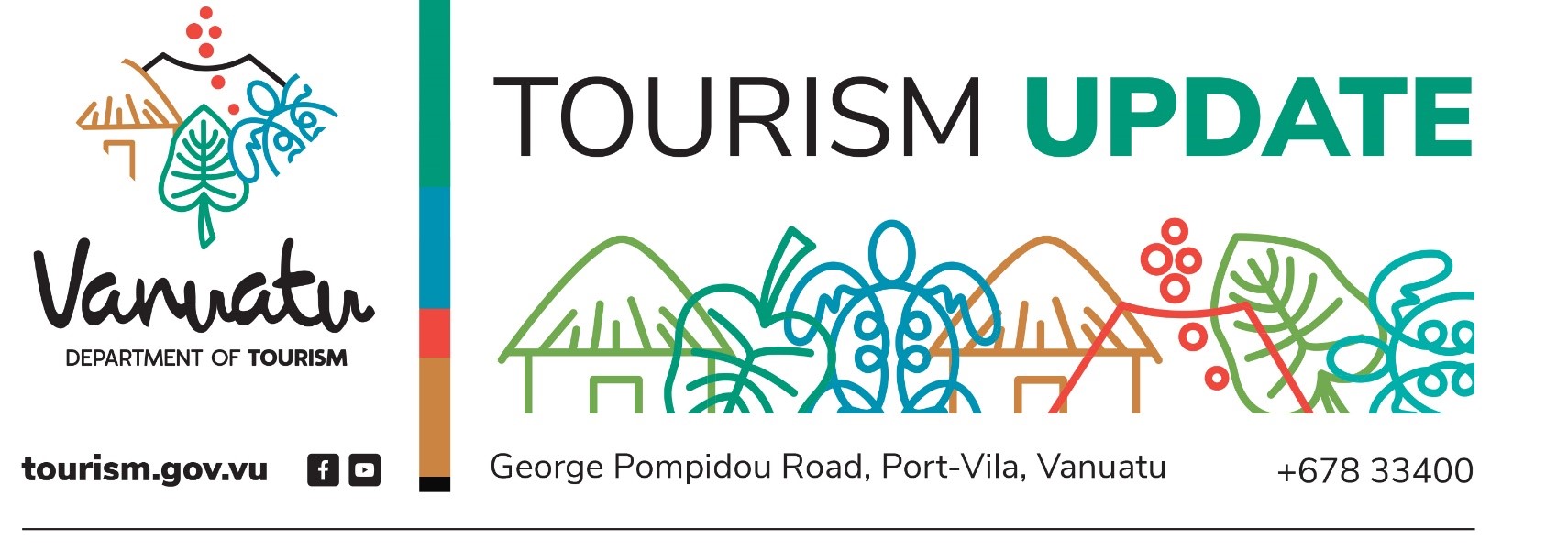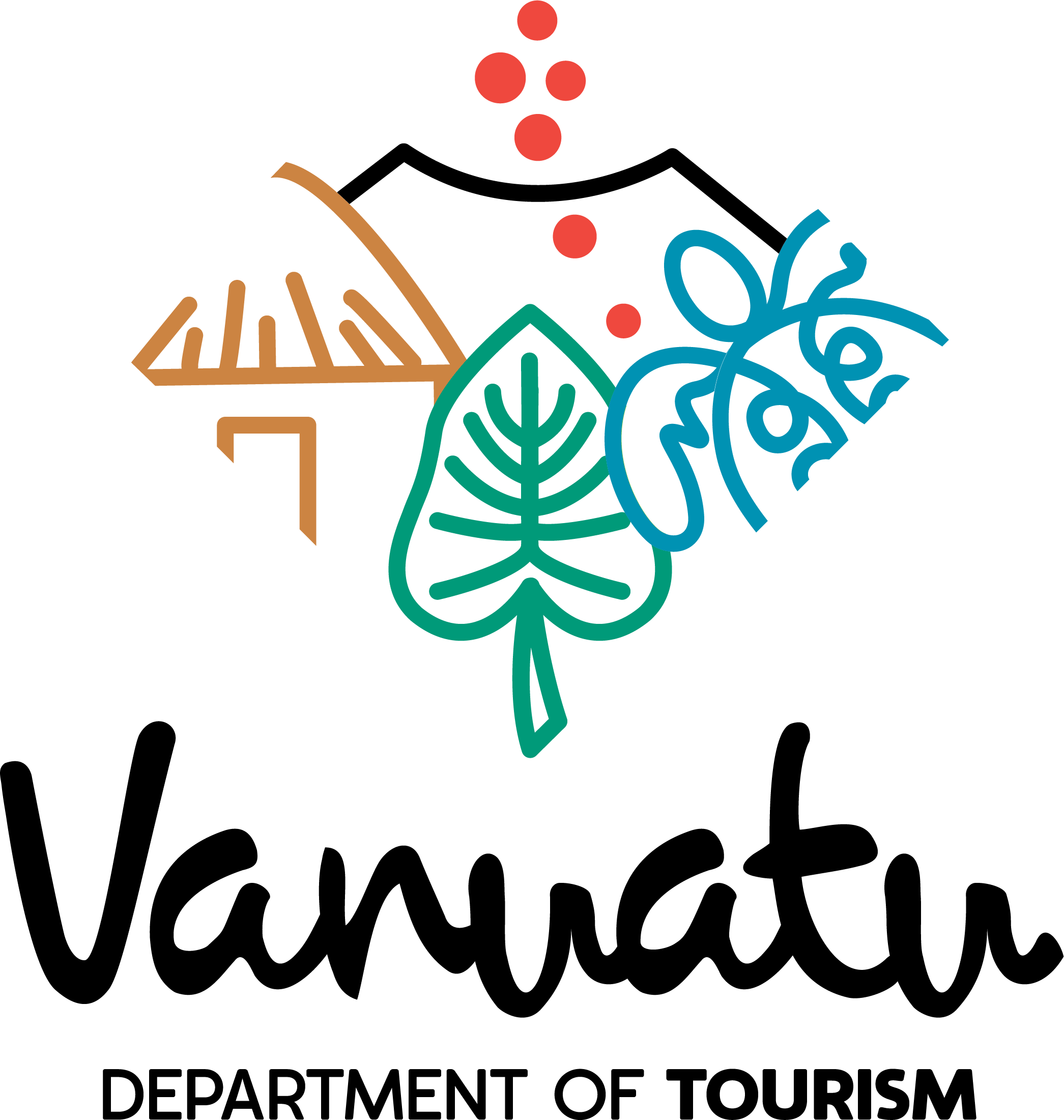
MOA for Safe Business Operations
An important initiative of the Vanuatu Government is the training of business using the ‘Vanuatu Guidelines for Safe Businesses Operations (SBO) in the context of the COVID-19’ to apply the new health and safety procedures. Businesses need to prepare, understand, respond, and take responsibility under each of the transmission scenarios and carry out the recommended Public Health actions. The SBO Policy Guideline will communicate to businesses the measures required to be ‘Clean, Caring and Checked’ through identifying one or more safety officers for training, to carry out risk assessment, and compliance with health measures.
The Department of Tourism (DoT) along with the Department of Public Health (DPH), the Australia Pacific Training Coalition (APTC), the Vanuatu Chamber of Commerce and Industry (VCCI), Vanuatu Skills Partnership (VSP) and World Vision Vanuatu (WVV) met on Tuesday the 29th of September to sign a Memorandum of Agreement (MOA) for cooperation on the Safe Business Operations training in the tourism sector.
These six partners have formed a training coalition in support of safe business training to both tourism business sector as well as micro-businesses including the informal sector. The training coalition is leveraging the equivalent of VT115 million (one hundred and fifteen million vatu) in support of industry-led training to COVID safe standards. This is a good example of the Vanuatu Government’s leadership for a coalition-based support for industry-led skills development, during a pandemic, and in support of our journey towards economic recovery. The coalition’s resources are also made possible through the invaluable support from Vanuatu, Australia, New Zealand, and the United States Governments.
This MOA falls under Pillar 3 of the Vanuatu Tourism Crisis Response & Recovery Plan (VTCRRP) under Phase 1 which is the Immediate Safety Response and Economic Recovery looking at product readiness. The main objective of Pillar 3 is to ensure tourism businesses are financially viable, appropriately supported, and ready to launch their product in a post Covid-19 environment.
The Vanuatu Government is determined to ensure that essential health protocols and measures are put in place, and that all businesses and service providers are fully prepared to receive international visitors as well as returning citizens and residents travelling for business, education and medical reasons during the pandemic, whilst protecting the health of the resident population.
The Ministry of Tourism in collaboration with the Ministry of Health, have put together health guidelines for Safe Business Operations (SBO). The main priority of the Government is to train tourism businesses on how to apply these new health and safety procedures using the ‘Vanuatu Guidelines for Safe Business Operations in the context of the Covid-19 pandemic’ document. This in turn gives everyone assurance and confidence in the Government’s efforts to ensure Vanuatu is ready in terms of health as well as business readiness.
DoT is the government agency with the mandate for policy, destination management, product development, cruise tourism and tourism standards. With the advance of COVID-19, this department has led a public-private sector collaboration to develop the multi-phased Tourism Crisis Response and Recovery Plan (TCRRP) for 2020-2023, and to ensure all planning efforts are guided by the Vanuatu Sustainable Tourism Policy.
DPH is the government agency with oversight of the Vanuatu Government’s COVID-19 response and preparedness activities. DPH works closely with the World Health Organisation to ensure that Vanuatu is abreast of the ongoing evolution of the pandemic, in order to better protect and promote the health of all people in Vanuatu. DPH provides technical health recommendations to the National COVID-19 Advisory Committee (NDMO) and also provides an advisory role on numerous sectoral committees, such as the TCRRP, in order to ensure coordinated and consistent compliance with national COVID-19 response actions.
APTC is the third stage of the Australian Government development program established in 2007 as the Australia-Pacific Technical College. The goal for APTC is to create ‘A more skilled, inclusive and productive workforce that enhances Pacific prosperity’. The supporting purpose is ‘The skills and attributes available to employers from Technical, Vocational Education and Training (TVET) systems align with labour market requirements’.
VCCI is the primary national private sector body in Vanuatu, established in 1995. Its mission is to support the private sector in making a unique and significant contribution to the achievement of the National Sustainable Development Goals, by delivering services that produce value for VCCI’s membership, Government and other stakeholders as well as support policies, strategies, legislation, regulations, treaties, agreements and initiatives that enable businesses to grow in ways that are sustainable, and have positive impacts on the economy, society and the environment.
Vanuatu Skills Partnership (VSP) aims to improve the quality of local training delivery to better deliver the skills required for inclusive and sustainable private sector growth and facilitate the recognition of these skills within the system, and in the region, for increased education pathways. Under the Vanuatu Ministry of Education and Training, VSP supports the decentralized operation of provincial Skills Centres, which act as brokers between demand and supply – contracting local training providers and industry coaches to deliver skills that will lead to greater productivity, increased employment and successful entrepreneurship. One of VSP’s core collaborative work streams include Skills for Tourism – with the Department of Tourism and the Vanuatu Tourism Office.
World Vision Vanuatu (WVV) is a Christian humanitarian organization dedicated to working with families and communities to empower them to meet their own needs. Since 1981, WVV has been working to transform communities through delivering programming to end violence, improve access to inclusive water, hygiene and sanitation, and develop sustainable, resilient livelihoods. WVV is committed to ensuring that all programming is in line with the Vanuatu Government’s National Sustainable Development Plan and delivered in partnership with Government, donor agencies, local organisations, and especially communities themselves.
The parties in the MOA have formed a coalition to collaborate to achieve the objectives and scope of the training. The training will be delivered by selected training providers who were shortlisted and were then issued Requests for Quotations (RFQ’s) to deliver training in individual provinces. A key criteria in identifying training providers is that they are Vanuatu Qualification Authority (VQA) accredited.
This is a very important partnership to get businesses prepared. They will also work together to ensure that DoT is supported so that there is credibility with the training and the rolling out of independent auditing for the purpose of certifying businesses. The roll-out date for training businesses on the SBO guidelines is October 2020.





